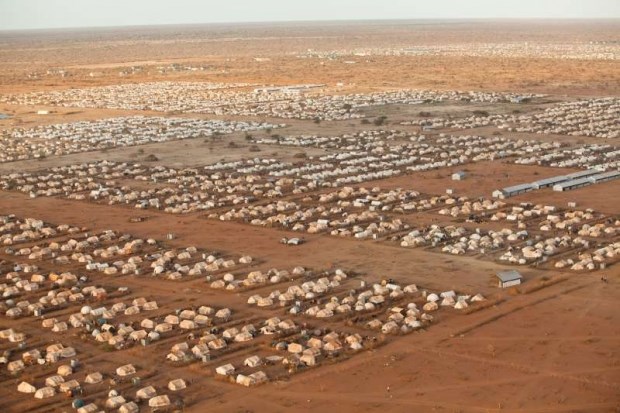
Sunday June 19, 2016
By Isaac Mwangi

In Africa, instability has been quite unpredictable, and an open policy to receive the citizens of countries that are in trouble has generally been practised. It is a policy that has served us well, one that needs to be jealously guarded.
For those countries that haven’t seen much by way of civil strife, the influx of refugees certainly appears to be a thorn in the flesh that we could well do without. That sort of thinking must have motivated Kenya’s leaders to move toward closing down the Dadaab Refugee Complex.
But a reversal of fortunes is never an impossibility. In 2007/2008, thousands of Kenyans in trouble spots in western Kenya crossed the border into Uganda. They were well received, and a good number refused to return to their homeland even after things had cooled down.Going by recent trends in Kenya, there is a very high likelihood that the exodus seen in the post-election violence of that time will be replicated in August 2017, only this time on a much larger scale. Hundreds of thousands of people, perhaps millions, will be crossing the borders to the west, south and other nearby countries using all possible means.
Kenya, which seeks to send back to Somalia up to half a million refugees, is itself highly fragile. What will happen if these other countries decide, too, to send the fleeing Kenyans back to be slaughtered by rampaging militia?
Kenya claims it has pacified large swathes of Somalia. If that were the case, why would Al Shabaab have the guts to attack and wipe out an entire unit of the Kenya Defence Forces? If that country is safe enough for refugees to return, what are Kenyan troops still doing there?
Indeed, it is not only inhuman, but a show of folly to send refugees back to Somalia. During the reign of terror by Uganda’s Idi Amin Dada, millions of Ugandans sought refuge in Kenya, Uganda and other neighbouring countries. They worked as teachers, artisans, engineers and in other capacities in these countries. Some intermarried and were absorbed into their host societies. When peace returned, many went back to their homeland, though not all.
The same can be said of Rwanda. For the decades that peace was an interlude to war, its nationals were scattered throughout the region. Today, that is a closed chapter, but Rwandans definitely have something to be grateful to other countries about.
The story of South Sudan is well known. The latest civil war to engulf the country created a new wave of refugees. Hopefully, the fragile peace that holds the competing parties together will hold.
Indeed, Kenya and Tanzania have been relatively peaceful, the exception rather than the rule. There have been occasional problems, no doubt. The clamour by some sections in Zanzibar for it to withdraw from the union with Tanzania remains a sore point. Indeed, recent elections on the island have tended to be controversial and even chaotic.
Corrupt and repressive societies have every reason to fear state collapse, which can occur for any of a variety of reasons. While Tanzania is relatively stable, especially under the leadership of President John Magufuli, the same cannot be said of Kenya. The ethnic divisions that characterize Kenya’s politics are also largely absent from Tanzania.
Uganda, too, is quite fragile, held together only by President Yoweri Museveni’s firm grip. All national institutions have been weakened and placed at the service of the Big Man. That is a dangerous state for any country, and sooner or later this peace bubble is bound to burst.
When there is any large influx of people from one country to another, it is obvious that among them will be found doctors and lawyers, but also thieves and rapists. So far, refugees have never been asked to leave wholesale in some sort of collective punishment for the sins of a few in their midst. Kenya’s move to expel hundreds of thousands of vulnerable people is therefore a first.
Unfortunately, it is coming at a time that Kenya’s own stability rests on very shaky ground. As partner states move towards integration, the term “refugees” should cease to apply when speaking of East Africans, who ought to have the freedom of movement across the entire region. And unless Somalia’s application is not being considered seriously, expelling its citizens is not in the interests of integration.